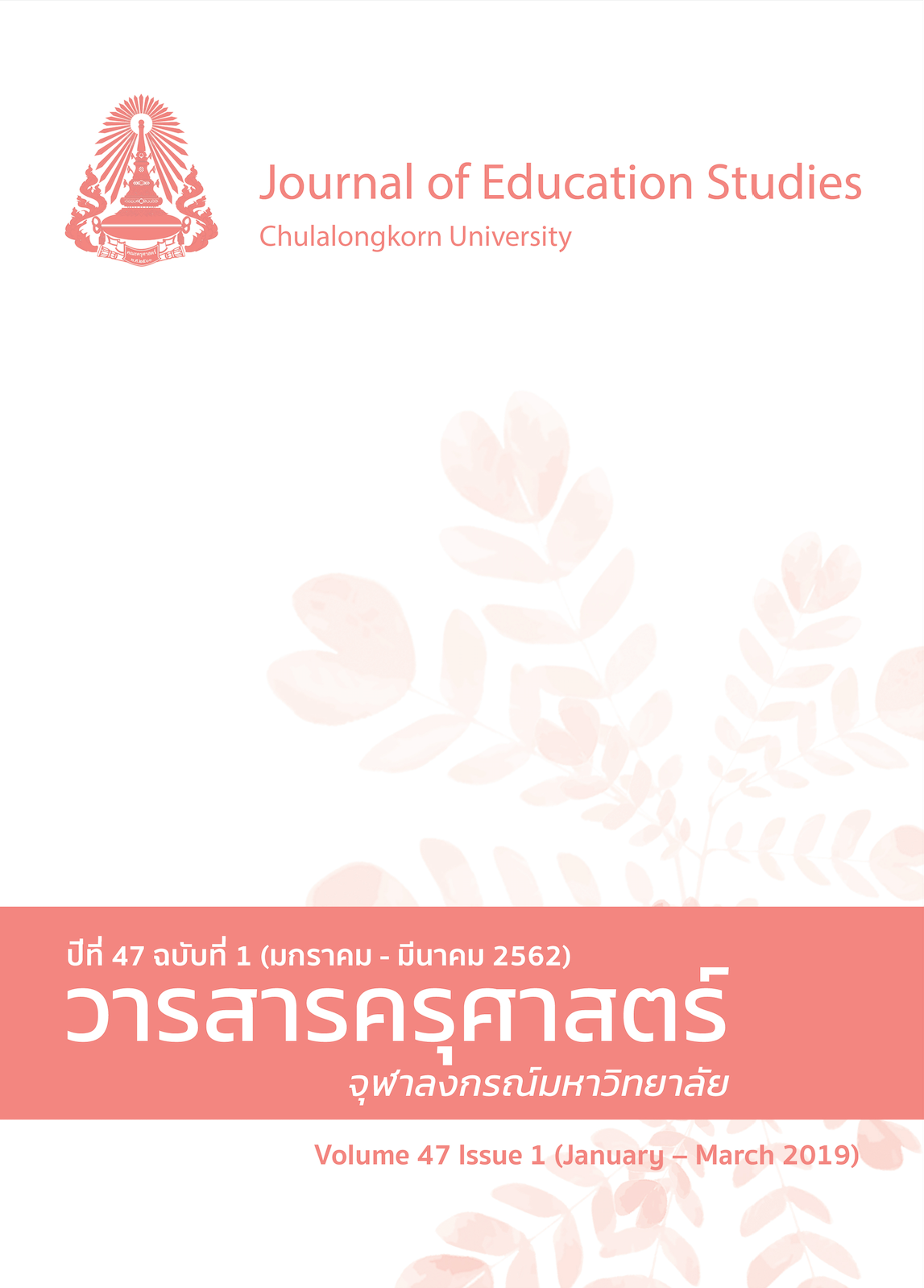หนึ่งทศวรรษทฤษฎีที่ใช้ในหลักสูตรการเรียนรู้ร่วมกันระหว่างผู้สูงอายุและเด็ก
Keywords:
INTERGENERATIONAL LEARNING, ELDERLY, CHILDRENAbstract
This study focuses on theories of intergenerational learning programs that bring
together older people and children. Academic articles published between 2007 and
2016 were included in the review and subjected to content analysis. The analysis indicated that theories of intergenerational learning programs can be categorized into two main types: 1) theories focusing on the interaction between individuals and groups (social capital theory, contact theory, intergenerational communication theories, the concept of empowerment, and ecological theory); and 2) individual development theories (psychosocial development theory, theory of personhood, transformative education, and lifelong learning). These theories mostly explain the objectives or goals of each program, how activities are arranged or designed in the curriculum, or the benefits of each program. The challenge remaining for field practitioners is how to build localized theories that respond to their practices. Theories grounded in direct experience could provide more understandings of the programs.




